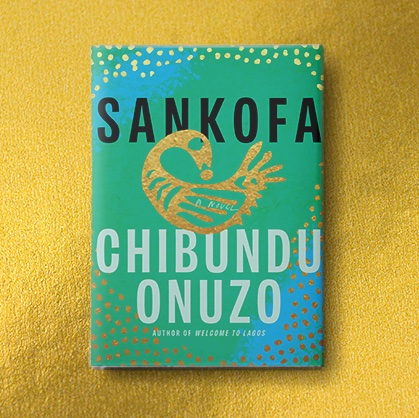This post may include affiliate links, which means we make a small commission on any sales. This commission helps Feminist Book Club pay our contributors, so thanks for supporting small, independent media!
Sankofa by Chibundu Onuzo is a powerful novel that explores the intersection of gender, race, and identity in contemporary Nigeria. The story follows Anna, a young biracial woman who returns to her hometown of Lagos after several years of studying in the United Kingdom. Anna is determined to uncover the truth about her father’s mysterious death and to reclaim her family’s lost legacy. But, as she delves deeper into the past, she must confront the difficulties of her own identity and the patriarchal norms that shape her society.
Onuzo also explores the intersection of class and gender, highlighting the ways in which economic privilege can both empower and constrain women’s lives. Anna’s family is wealthy and influential, but their power is ultimately tied to patriarchal structures that limit women’s freedom. Through Anna’s journey, Onuzo shows how women can use their privilege to challenge these structures and create space for themselves and others.
I loved reading about the dynamic between Anna and her family because it’s one that we’ve seen time and time again in society – an estranged and problematic well-known family that uses wealth to cover up their inadequacies. When you add the complexities of how Anna struggles with her identity and race, it makes for an incredibly interesting story.
Although I can’t relate to Anna and her feelings about the struggles of being a biracial woman in today’s society, I did relate to the complex emotions that arise when you discuss your identity. I am personally an Iranian-American and have strongly identified with that my entire life. However, there are times when I have felt conflicted about who I am. Am I truly Iranian if I didn’t grow up in Iran? Am I truly American if my background is Iranian? Which side do I identify with, both internally and externally? How do I handle situations where I am a white-passing woman of color? These are a few of the questions that constantly run through my mind when I think about my identity. I empathized with Anna’s mindset when she questioned her identity in this novel.
Some of my favorite books are ones that cover dramatic and complicated family dynamics while discussing the intersection of gender and race – such as The Vanishing Half (reviewed by Taylor here), Such a Fun Age, and, of course, Sankofa. All these books share the protagonist’s emotions and perspectives while keeping you on your toes about the next dramatic event. Sankofa, specifically, shared Anna’s viewpoint so eloquently that you felt like you could understand her mindset, what she would do next, and why she felt certain emotions. The writing was beautiful, clear, and impactful.
Overall, Sankofa is a powerful and thought-provoking novel that offers a nuanced and intersectional perspective on the challenges faced by women of color in patriarchal societies. Onuzo’s writing is engaging and insightful, and her characters are multi-faceted. This book will stay with readers long after they finish it – it did for me!



what a confusing review- this book took place in a fictional country and city and anna was a married woman whose father was the leader of this fictional nation- are there different versions?